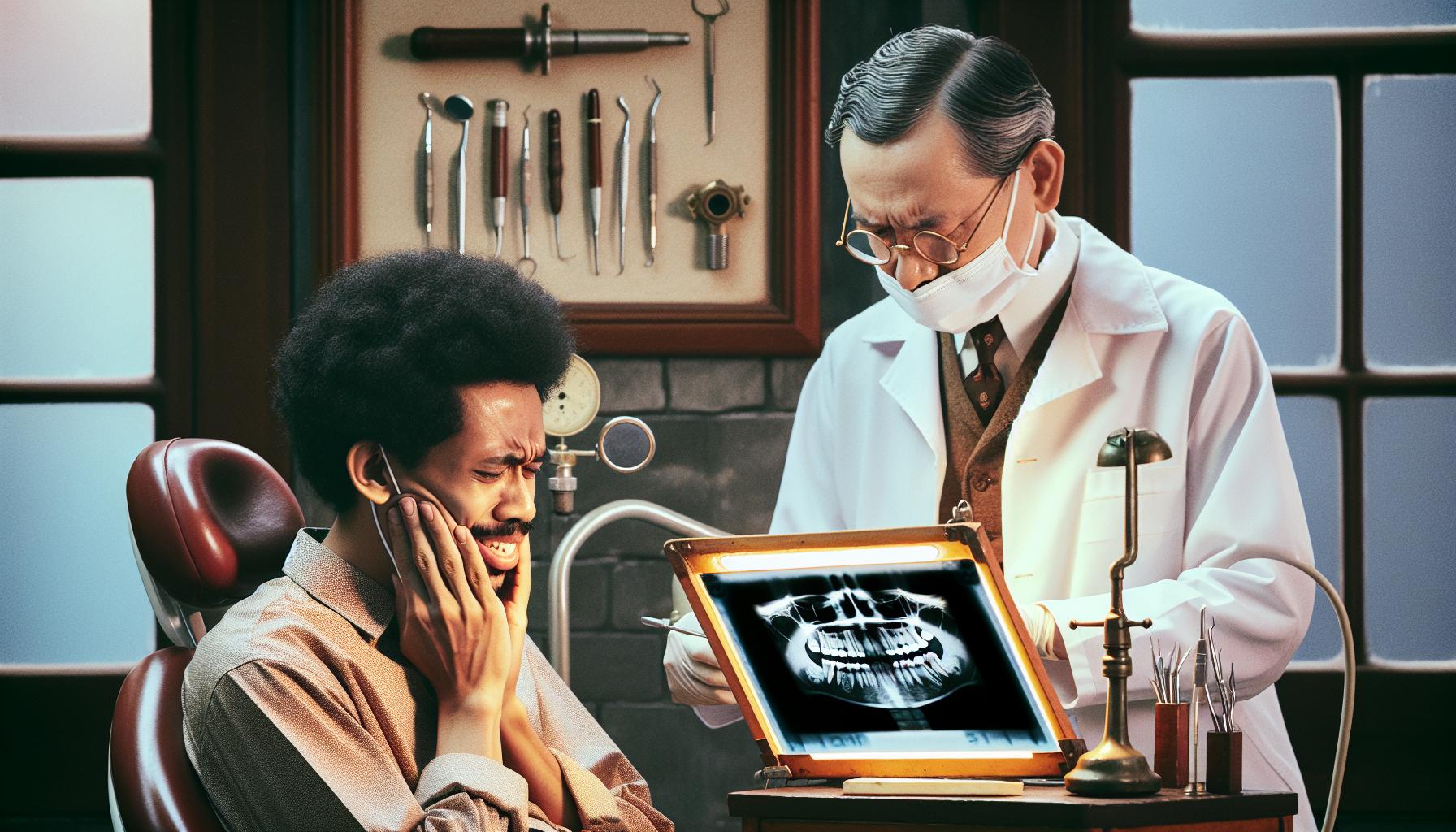Dental emergencies can strike unexpectedly, leaving individuals in pain and uncertainty. Knowing how to find an emergency dentist quickly is crucial for receiving timely care and alleviating discomfort. This guide will explore effective strategies for locating a reliable emergency dental service, ensuring peace of mind when it matters most.
Understanding Emergency Dentistry
Emergency dentistry addresses urgent dental issues that require immediate attention. Conditions that qualify as emergencies often include severe toothaches, knocked-out teeth, broken or cracked teeth, abscesses, and injuries to the gums or soft tissues of the mouth. Prompt care can prevent complications and alleviate pain.
Dentists specialising in emergency care are equipped to handle these situations quickly. Many provide same-day appointments and are available after normal operating hours. They assess the problem, manage pain, and perform necessary procedures, such as extractions or root canal treatments.
If you’re searching for urgent dental care, consider contacting Emergency Dentist Perth, a clinic that specializes in providing immediate assistance for dental emergencies. With extended hours and a compassionate team, they are well-equipped to help in situations like broken teeth, toothaches, or infections.
Identifying a reliable emergency dentist involves several considerations. Research local dental practices, checking for 24/7 availability, and reading patient reviews. It’s essential to verify their credentials and ensure they have the required resources for urgent care.
Identifying Dental Emergencies

Identifying dental emergencies is crucial for timely treatment. Immediate action can prevent further complications and alleviate pain.
Common Signs of a Dental Emergency
Severe Pain: Intense pain in teeth or gums often signals a dental emergency. This may indicate an infection, abscess, or other significant issues.
Swelling: Swelling in the face or gums can suggest infection or an abscess, requiring urgent care.
Bleeding: Persistent bleeding from the gums or mouth necessitates immediate dental attention, as it may indicate a serious condition.
Loose or Knocked-Out Teeth: A loose or completely knocked-out tooth requires prompt intervention to save it.
Broken Teeth: Fractured or chipped teeth, especially those causing pain or exposing nerves, should be evaluated quickly.
Types of Dental Emergencies
Toothaches: Severe toothaches may arise from decay, infection, or gum disease, demanding urgent treatment.
Knocked-Out Teeth: Immediate re-implantation is crucial for a knocked-out tooth, typically within 30 minutes, for the best chance of saving it.
Cracked or Broken Teeth: Cracked teeth can lead to further damage or infection if not addressed promptly.
Abscesses: Dental abscesses, which are pockets of pus from infections, require immediate intervention to prevent the spread of infection.
Soft Tissue Injuries: Injuries to gums, tongue, or cheeks often cause significant bleeding and warrant urgent care.
Understanding these signs and types of emergencies allows individuals to act quickly, ensuring they receive necessary treatment efficiently.
Tips for Finding an Emergency Dentist
Finding an emergency dentist involves specific strategies that ensure prompt and effective care. The following tips facilitate the search for a qualified professional during urgent situations.
Researching Local Options
Research local dental practices by using online platforms or directories. Searches for “emergency dentist near me” or “24-hour dental care” yield relevant results. Local dental associations or health directories often maintain lists of member practices. Referrals from primary care providers or friends can also lead to reputable emergency dentists. Additionally, check if local hospitals have dental services or can recommend nearby emergency dental clinics.
Checking Qualifications and Reviews
Check qualifications to confirm that a dentist is licensed and experienced in emergency care. Look for certifications from recognised dental boards or associations, signifying adherence to professional standards. Read patient reviews on platforms like Google, Yelp, or Healthgrades for insights into others’ experiences. Pay attention to feedback regarding the dentist’s response time, communication skills, and treatment effectiveness to assess suitability for urgent dental needs.
Preparing for Your Visit
Preparation for a visit to an emergency dentist significantly reduces stress and ensures the appointment runs smoothly. It’s vital to gather specific information and ask relevant questions to facilitate effective treatment.
Essential Information to Provide
- Personal details: Include name, address, phone number, and date of birth for accurate records.
- Medical history: Share existing health conditions, allergies, and current medications to help the dentist assess treatment needs.
- Dental history: Provide information on any past dental issues or treatments, especially those related to the current emergency.
- Details of the emergency: Describe symptoms, including pain levels, duration, and any noticeable swelling or bleeding.
- Insurance information: Present details regarding dental insurance coverage to streamline payment processes.
Questions to Ask Your Emergency Dentist
- What are the treatment options? Understanding potential treatments helps to make informed decisions.
- What are the costs associated with the treatment? Knowing the cost upfront allows for better financial planning and avoids unexpected expenses.
- How long is the treatment expected to take? Knowing the time frame aids in scheduling and managing expectations.
- What aftercare is needed? Inquire about follow-up appointments and any specific home care instructions.
- How can I reach you in case of further issues? Establishing a line of communication ensures that concerns after treatment can be addressed promptly.
Conclusion
Finding an emergency dentist can make all the difference in managing dental crises effectively. By being proactive and knowing where to look individuals can ensure they receive timely care when it’s needed most.
Utilising local resources and technology enhances the search for qualified emergency dental services. Understanding the signs of a dental emergency and preparing for the visit can significantly reduce anxiety and facilitate a smoother experience.
With the right knowledge and preparation individuals can face dental emergencies with confidence knowing they have access to the care they need.
Frequently Asked Questions
What is a dental emergency?
A dental emergency is a situation requiring immediate attention due to severe pain or injury involving the teeth, gums, or mouth. Common examples include severe toothaches, knocked-out teeth, broken or cracked teeth, abscesses, and injuries to soft tissues.
How can I find an emergency dentist?
You can locate an emergency dentist by researching local dental practices online, checking directories, or using mobile apps that offer real-time availability. It’s also helpful to ask your primary care provider or friends for referrals and check local hospitals for dental services.
What should I do in a dental emergency?
In a dental emergency, remain calm and assess the situation. If you’re experiencing severe pain, swelling, or bleeding, seek an emergency dentist immediately. Providing essential information about your medical and dental history can help ensure you receive prompt treatment.
How do I prepare for a visit to an emergency dentist?
To prepare for an emergency dentist visit, gather personal information, medical and dental history, and specifics of your emergency. Additionally, have your insurance information ready and formulate questions about treatment options and aftercare to discuss during your appointment.
What are signs that I need emergency dental care?
Signs that indicate emergency dental care is needed include severe pain, persistent bleeding, swelling, loose or knocked-out teeth, and broken teeth. If you experience any of these symptoms, it is crucial to seek help from an emergency dentist promptly.
